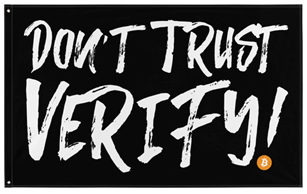Pig Butchering - How to Avoid the Bitcoin Slaughterhouse

In this article:
With December approaching, you might find yourself dreaming about delicious pigs in blankets to go with your Christmas dinner. But be careful you don’t get too complacent, because you never know when you might receive a visit from the Grinch.
A scamming technique called “pig butchering” is on the rise, and if you’re not careful, you could be the one heading to the slaughterhouse.

The true scale of “pig butchering” scams was revealed just a couple of weeks ago when the U.S. Department of Justice (DOJ) unsealed an indictment against a Cambodian businessman named Chen Zhi, charging him with wire fraud and money laundering conspiracies.
Chen Zhi is chairman of the Cambodian conglomerate known as the Prince Group, an organization that commands over 5,000 employees and has concerns in everything from real estate and financial services to consumer goods and even philanthropy via their “Prince Foundation.” But despite these seemingly innocent appearances, the crimes Chen Zhi stands accused of are truly shocking.

The U.S. authorities, in conjunction with partners in the U.K., Taiwan, Hong Kong, and Singapore, discovered that Chen was no ordinary businessman, but the ringleader of one of the world’s largest ever “scam compounds,” responsible for billions of dollars of online fraud every year.
As if that wasn’t abhorrent enough, it also emerged that Chen wasn’t working with colleagues to perpetrate these crimes. Instead, his “scam compounds” were operated by hundreds of human trafficking victims being held against their will and forced to carry out his fraudulent schemes.

The scale of these crimes is astonishing. Operating since 2015, Chen’s scam compounds housed thousands of unfortunate souls forced into working 18-hour days to execute his “pig butchering” scams.
It’s hard to estimate just how much money this enterprise has managed to steal over the past decade, but so far, 127,271 Bitcoin worth over $15 billion has been seized from Zhi’s wallets. This was the largest forfeiture in DOJ history. Authorities have also sanctioned 146 individuals worldwide and seized assets including yachts, luxury cars, rare dinosaur bones, and even a Picasso.
While it’s a record bust, it’s probably safe to assume that it represents only a fraction of the total amount the operation managed to defraud from its victims. And despite facing a 40-year sentence, Chen Zhi is still at large.

This story has thrown “pig butchering” squarely into the limelight, and for good reason. Both the scale and nature of these “scam compounds” have shocked even those within the cybersecurity industry. Perpetrating fraud is always a heinous, cowardly act, but using forced labor to achieve it is truly grotesque.
Unfortunately, this seizure by no means signals an end to this twisted type of venture. Despite the size of Chen’s criminal empire, he controlled only 10 out of an estimated 300 scam compounds operating across Cambodia. Despite being responsible for thousands of trafficking victims and tens of billions in stolen funds, Chen’s activities represent less than 3% of the problem.

So, this week, let’s take some time to understand how these scammers operate so we can better protect ourselves and those around us.
What Is Pig Butchering?
The phrase “pig butchering” (or sha zhu pan in Chinese) emerged from criminal syndicates in China and Cambodia around the mid-2010s and derives its name from the way farmers fatten their pigs before slaughter.
At its core, pig butchering is a long con scam that preys on human emotions like loneliness, greed, and hope. The “pig” refers to the victim, who is groomed and “fattened up” with promises of wealth or love, only to eventually end up being “butchered” financially later.

Pig butchering is no hasty smash and grab. It’s a meticulously planned operation that can span weeks, months, or even years.
It starts when victims receive a seemingly innocent “wrong number” text, match on a dating site, or new unsolicited business opportunity. If the victim responds and takes the bait, the scammer, using a fake profile, poses as an attractive or successful individual and starts engaging in casual conversation to build rapport.
Over time, the scammer will start to slowly weave in tales of shared interests and emotional bonds with their victim to build familiarity and earn their trust. Then, once they feel the time is right, the scammer will begin sharing fabricated stories of their successful investments and the potential for the victim to also start cashing in.

The “fattening” phase starts slowly and carefully. Victims are directed to realistic but fraudulent investment platforms where they are encouraged to make small investments just to “test the waters.” These fake platforms then show the victims that their investments are performing incredibly well. With that, the trap is set.
Lured in by the thrill of making easy money with their new friend or potential love interest, the whole experience becomes intoxicating to the victim. They begin to deposit more and more funds into the fraudulent scheme, with the scammers continuously reinforcing the behavior using psychological tricks like urgency (“This opportunity won't last!”), emotional bonding (“We’re in this together!”), or romantic opportunity (“We can start a new life together”).

Eventually, the pig gets butchered, and the scammer takes the victim for everything they’ve got. If the victim ever tries to cash out their “investments,” the veil quickly drops as they realize they can’t, and their new close friend completely ghosts them.
Unfortunately, pig butchering victims often don’t realize what’s happening until it’s too late, and they are too heavily invested and facing financial ruin. People have been lured into remortgaging their properties, draining their 401(k)s, borrowing from loved ones, and even divorcing their partners based on fake promises they thought were true.

Pig butchering is a cruel crime that destroys its victims. The techniques used weaponize human emotions and trust and leave victims financially destitute, emotionally scarred, and socially isolated for years.
The shame and embarrassment from being “fooled” in such an intimate way prevent many victims from reporting the crime or confiding in others, prolonging their trauma. The dehumanizing terminology further compounds this, making victims feel like naive “pigs” rather than innocent victims of sophisticated fraud.
Many victims end up taking their own lives.
How to Protect Yourself and Others
Pig butchering scams have exploded since the advent of Bitcoin. With access to borderless money, scammers can now relieve victims of their wealth without having to navigate the regulated banking system. If they can manipulate their victims shrewdly enough, they can extract their money quietly, quickly, and with far less oversight from authorities.

The scams are also getting harder to detect. With new technologies like AI, scammers can create believable fake images and videos...
To avoid becoming a victim of these increasingly convincing scams, it pays to understand that they aren’t hacking your computer. They’re hacking your brain. Your adversaries are not amateurs and, in an industry worth billions, they are using increasingly sophisticated technology and psychology to rob you blind.
You should start by becoming highly skeptical of unsolicited messages, whether they are texts, social media DMs, or emails from strangers initiating contact with you first. You should even be careful with messages from people you think you know. Many victims have been tricked by impersonators, so wherever possible, verify the identity of the person you’re speaking to.

You should also be mindful not to overshare with people you don’t know well. You shouldn’t be revealing your location, financial info, family background, or any other personal info that a potential scammer could use to tailor their manipulation toward you. Keep things on a strictly need-to-know basis at all times. It’s far easier to scam someone if you know a lot about them.

Finally, always ask yourself this question: “Does this sound too good to be true?” Because if it does, chances are, it is. Sydney Sweeney didn’t slide into your DMs because she thinks you have great jeans, and anyone promising you high returns with low risk or pressuring you to act fast is almost certainly a scammer.

Now you might have read this week’s newsletter and found yourself questioning how anyone could possibly fall for these scams. But the numbers don’t lie. Millions of people do fall for them, and it can completely ruin their lives.
Most victims suffer in silence, so make sure you keep a close eye on your friends and loved ones. If they’re secretive about their online interactions, have become obsessed with new “friends” or “investments,” or are asking to borrow money without clear reasons, these could all be warning signs that they have fallen into a scammer’s trap.
We should all do what we can to spread awareness of these threats until these techniques become as well known as the infamous “Nigerian Prince” scams of the 90s.

Avoid the Slaughterhouse – The Bitcoin Way
If you want to avoid being sent to the slaughterhouse, then the best way to protect yourself is to improve your knowledge. As Bitcoin becomes more valuable and scams become more sophisticated, it’s more important than ever to make sure your cybersecurity and online privacy are airtight.
If you intend to stack Bitcoin for the long term, then you can’t afford to make any mistakes. Simply buying Bitcoin and hoping for the best is extremely cavalier. You have a responsibility to learn how to protect it properly, because nobody else is coming to save you.

Thankfully, the experts at The Bitcoin Way can train you on everything you need to know to make sure your Bitcoin always remains secure, and your private information remains private. In just a few sessions we can transform you into a confident and capable Bitcoiner with systems and protocols in place that the scammers simply can’t penetrate.
Make sure you don’t become a target, book a free 30-minute call and let’s start your training today.
